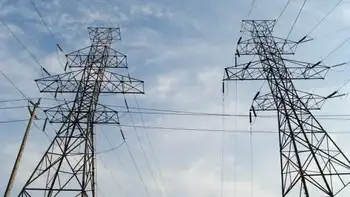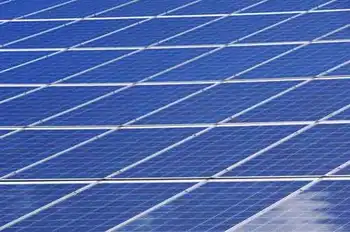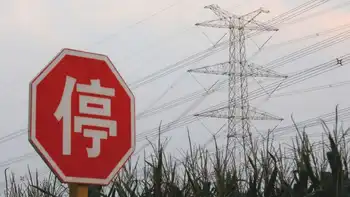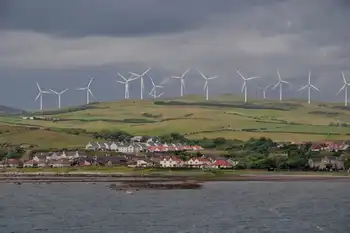LNG Canada, BC Hydro sign power agreement
The agreement ensures that if LNG Canada makes a positive investment decision, their facility will be an environmental leader.
"This agreement is an important step forward towards getting the LNG industry up and running," said Premier Christy Clark. "It's about providing certainty for one of British Columbia's largest and most promising proposals."
This is the first power agreement signed in British Columbia with an LNG proponent. The agreement covers a portion of the electricity supply that will be required to power the commissioning and operation of LNG Canada’s proposed facility – all auxiliary power needs. LNG Canada will use natural gas turbines to drive the refrigerant compressors to chill natural gas into liquid form.
"We heard very clearly from First Nations, the local community, and the provincial government how important it is that LNG Canada considers environmental factors when planning for the proposed project," said Andy Calitz, CEO of LNG Canada. "The decision to power our facility with renewable electricity in combination with highly efficient natural gas turbines reflects our commitment to listen to, and act on feedback from our stakeholders, when possible."
"The Haisla people strongly support this project but have always believed that it should be as 'green' as possible, and this use of clean hydro power is good news. This also adds more certainty to the context around the project in which we will participate — our people are keen to realize the employment and other economic benefits to come," said Chief Councillor Ellis Ross.
"Coastal First Nations welcomes this decision by LNG Canada," said Art Sterritt, Executive Director of the Coastal First Nations. "Minimizing the environmental impact of the B.C. LNG industry is our primary concern and LNG Canada's choice of a power solution demonstrates tangible action to address it."
The agreement also details the development, operation and maintenance of transmission infrastructure required to connect the proposed facility to BC Hydro' grid. LNG Canada will fund the improvement of the infrastructure.
"When we released our LNG strategy, we committed to provide LNG proponents with sufficient energy for their operations while protecting rates for British Columbians. We are implementing that plan," said Minister of Natural Gas Development Rich Coleman. "LNG Canada will invest in new infrastructure to upgrade BC HydroÂ’s grid while helping to keep rates low for existing customers."
"[This recent] agreement between BC Hydro and LNG Canada is another sign of the growing demand for electricity in British Columbia," said Energy and Mines Minister Bill Bennett. "BC Hydro's Integrated Resource Plan indicates that B.C. will need new energy by 2024, assuming an initial LNG load of 3,000 gigawatt hours. Any demand above this would further accelerate and increase B.C.Â’s need for new power."
"Electricity is the backbone of our economy. For decades, BC Hydro has powered industry in B.C. with clean, renewable electricity while maintaining among the lowest rates in North America. We're pleased to help power the LNG industry in B.C. This new agreement provides greater certainty on future load growth while delivering long-term benefits for our customers," said Jessica McDonald, President and CEO, BC Hydro.
LNG Canada is a joint venture company comprised of Shell Canada Energy 50 percent, an affiliate of Royal Dutch Shell plc, and affiliates of PetroChina 20 percent, Korea Gas Corporation 15 percent and Mitsubishi Corporation 15 percent.
The joint venture is proposing to build an LNG export facility in Kitimat that initially consists of two LNG processing units referred to as "trains," with an option to expand the project in the future to four trains. The project received an export license from the National Energy Board in February. A main contractor has been chosen to support front end engineering and design work. Technical and environmental studies are ongoing to support B.C.'s environmental assessment process.
Related News
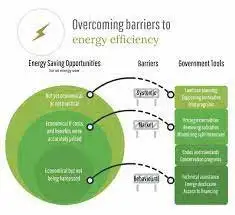
Ontario to Provide New and Expanded Energy-Efficiency Programs
TORONTO - Ontario will be making available four new and expanded energy-efficiency programs, also known as Conservation and Demand Management (CDM) programs, to ensure a reliable, affordable, and clean electricity system to power the province, drive electrification and support strong economic growth. As there will be a need for additional electricity capacity in Ontario beginning in 2025, and continuing through the decade, CDM programs are among the fastest and most cost-effective ways of meeting electricity system needs.
Conservation and Demand Management
The Ontario government launched the 2021-2024 CDM Framework on January 1, 2021. The framework focuses on cost-effectively meeting the needs of…


